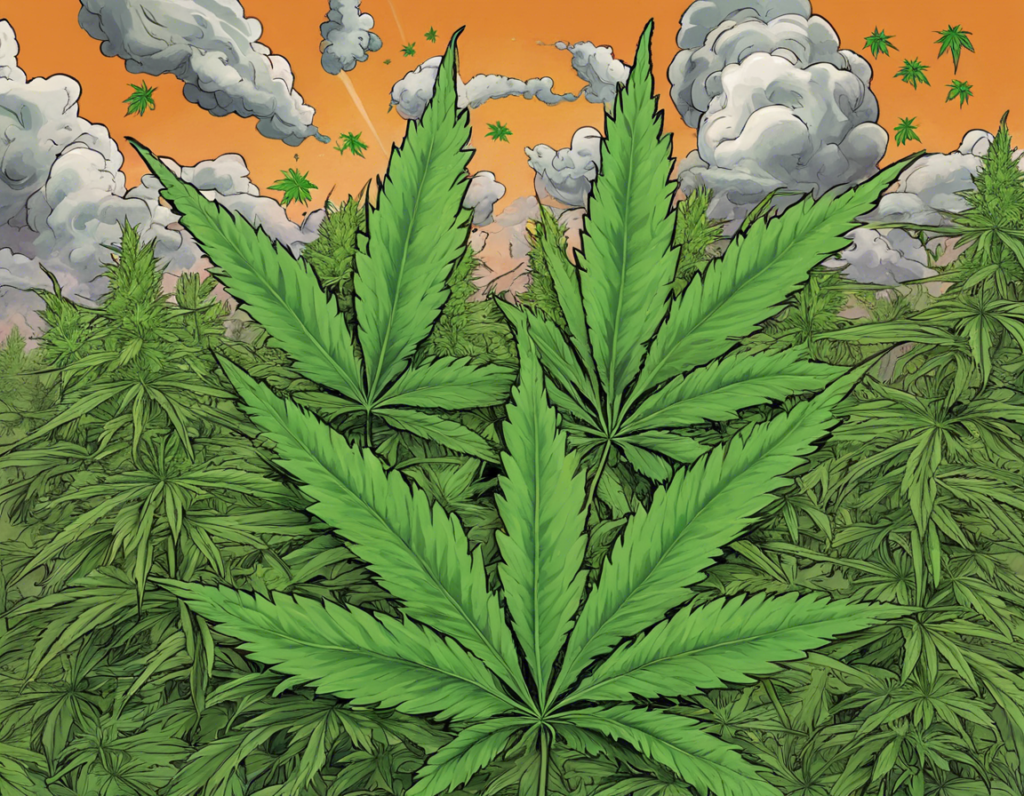Cannabis, more commonly known as weed, pot, or marijuana, has been a topic of significant interest and debate in recent years. With the changing legal landscape surrounding cannabis and the increasing recognition of its potential medical benefits, many people are becoming more curious about this versatile plant. Whether you’re a seasoned consumer or someone who is simply looking to learn more, this comprehensive guide will take you on a journey through the world of cannabis, covering everything from its history and uses to its potential risks and benefits.
Understanding Cannabis: A Brief Overview
Cannabis is a plant that has been used for thousands of years for various purposes, including medicinal, recreational, and industrial. The two primary species of cannabis are Cannabis sativa and Cannabis indica, with hybrid strains combining characteristics of both. The plant contains more than 100 compounds known as cannabinoids, with tetrahydrocannabinol (THC) and cannabidiol (CBD) being the most well-known and studied.
The History of Cannabis
Cannabis has a long and storied history, with records of its use dating back thousands of years. It has been used in various cultures for medicinal, spiritual, and recreational purposes. In the United States, cannabis was widely used as a medicinal ingredient in the 19th and early 20th centuries before being criminalized in the 1930s. In recent years, there has been a shift in public perception and policy towards cannabis, leading to legalization for medical and recreational use in many states.
Uses of Cannabis
Cannabis has a wide range of uses, including:
-
Medicinal Purposes: Cannabis is used to alleviate symptoms of various medical conditions, including chronic pain, nausea, and anxiety. CBD, in particular, has gained popularity for its potential therapeutic effects without the psychoactive properties of THC.
-
Recreational Use: Many people use cannabis for its psychoactive effects, which can induce feelings of relaxation, euphoria, and creativity.
-
Industrial Applications: Hemp, a variety of cannabis with low THC levels, is used in the production of fibers, textiles, paper, and even construction materials.
Methods of Consumption
Cannabis can be consumed in several ways, including:
-
Smoking: The most common method of consumption, smoking cannabis involves inhaling the smoke produced by burning the plant’s flowers.
-
Vaping: Vaporizing cannabis heats the plant material or concentrates to a temperature that releases cannabinoids and terpenes without combustion, potentially reducing the harmful effects of smoke inhalation.
-
Edibles: Cannabis-infused foods and beverages offer a discreet and tasty way to consume cannabis, with effects that typically take longer to kick in but last longer.
-
Topicals: Cannabis-infused creams, lotions, and balms are applied directly to the skin and are used for localized pain relief and anti-inflammatory effects.
Potential Risks and Benefits
While cannabis has a range of potential benefits, including pain relief, nausea reduction, and improved mood, it is not without risks. Some potential disadvantages of cannabis use include:
-
Impaired Cognitive Function: Heavy or prolonged cannabis use can impair memory, concentration, and decision-making.
-
Addiction: While cannabis addiction is less common than with substances like alcohol or nicotine, some individuals may develop a dependence on cannabis.
-
Mental Health Effects: Cannabis use has been linked to an increased risk of mental health issues, such as anxiety disorders and psychosis, especially in those predisposed to such conditions.
-
Respiratory Issues: Smoking cannabis can cause respiratory problems similar to those associated with smoking tobacco.
Frequently Asked Questions About Cannabis
- Is cannabis legal?
-
The legal status of cannabis varies by country and state. It is important to check local laws and regulations before using cannabis.
-
Can I get addicted to cannabis?
-
While cannabis addiction is less common than with other substances, some individuals may develop a dependence on cannabis.
-
What is the difference between THC and CBD?
-
THC is the psychoactive compound in cannabis that produces a “high,” while CBD is non-psychoactive and is known for its potential therapeutic effects.
-
How does cannabis affect driving?
-
Cannabis can impair cognitive function and motor skills, making it dangerous to drive under the influence. It is advised to avoid driving after consuming cannabis.
-
Is it safe to use cannabis during pregnancy?
-
The use of cannabis during pregnancy is not recommended, as it may have adverse effects on fetal development.
-
Can I mix cannabis with other medications?
-
It is important to consult with a healthcare provider before combining cannabis with other medications, as it can interact with certain drugs.
-
What are the potential medical benefits of cannabis?
-
Cannabis is used to alleviate symptoms of various medical conditions, including chronic pain, nausea, and anxiety. Research suggests it may also have anti-inflammatory and neuroprotective properties.
-
Can I overdose on cannabis?
-
While it is unlikely to fatally overdose on cannabis, consuming large amounts can lead to discomfort, anxiety, and paranoia. It is essential to consume cannabis responsibly.
-
How long does cannabis stay in your system?
-
The time cannabis stays in your system depends on various factors, such as frequency of use, dosage, and metabolism. THC can be detected in urine, blood, and hair for days to weeks after use.
-
Is cannabis smoke harmful to my lungs?
- Cannabis smoke contains many of the same harmful ingredients as tobacco smoke, and long-term smoking can lead to respiratory issues. Using alternative consumption methods like vaping or edibles may reduce these risks.
In conclusion, cannabis is a complex plant with a history deeply intertwined with human civilization. As attitudes and laws regarding cannabis continue to evolve, it is crucial to educate oneself about its uses, potential risks, and benefits. Whether you are considering cannabis for medical purposes, recreational use, or simply curious about its properties, understanding the nuances of this plant can help you make informed decisions about its consumption. Remember to always consume responsibly and within the confines of the law to ensure a safe and enjoyable experience.
